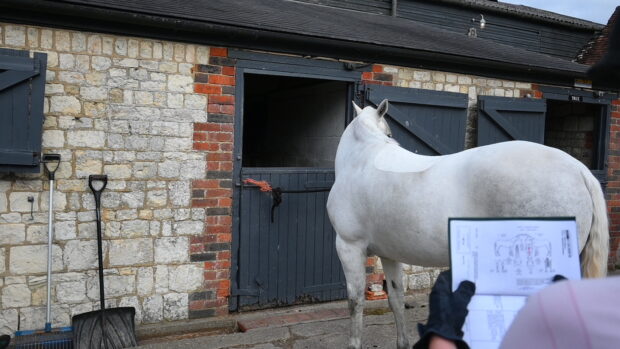An illegal horse dealing business has been banned from trading on 200 acres of private land in the Old Redding area of Harrow, Middlesex.
Harrow Council last week obtained a two-year injunction against husband and wife team Nathan and Tina Jordan of Oxhey Lane, Herts, who had been trading horses illegally on land that did not belong to them. At times there were as many as 75 horses grazing on the land.
Involved in the operation to obtain the injunction was Thames Valley Horsewatch. Its spokesman told H&H: “The horses had been there for about 18 months. Sometimes there were 20, at other times up to 80. When we approached various people, they said the horses were nothing to do with them. There were mares, foals, Thoroughbreds — you name it.”
An undercover operation involving the police, trading standards, the RSPCA and the International League for the Protection of Horses resulted in a number of passports being seized from an address in the area.
“We matched about 10 passports to horses on the land, and were able to prove ownership,” said the Horsewatch spokesman. “We did check for stolen horses but found none.”
A third of the 200 acres is owned by Harrow Council and leased to agricultural contractors. The remainder is in private ownership.
According to the council, the horses regularly strayed into gardens around the site.
“This was an unusual injunction for us to seek,” said Harrow councillor Susan Hall. “We worked closely with the police in seeking to put an end to an illegal trade that was causing misery to landowners and householders.”
Land agent William Shearer, who acts on behalf of the Blackwell Trust, owner of 140 acres of the land, said: “We have never come across anything as bad as this.
“All of a sudden these horses appeared last year, and despite a number of investigations, letters and requests to the perceived owners, they failed to remove them.”
The injunction granted against the Jordans prohibits the couple from going on the land or encouraging others to do so. Should they breach the injunction, the council can take court action that could lead to imprisonment.
This news story was first published in Horse & Hound (15 November, ’07)



